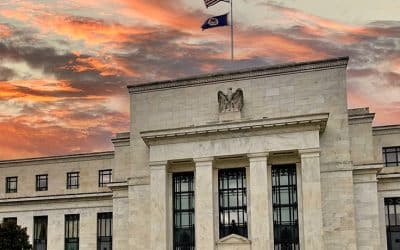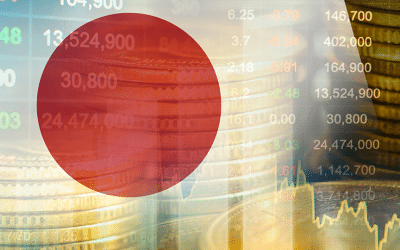“The more imperfect the market, the better active management works, in emerging markets as well”

Redacción Mapfre
Emerging equity markets were down in 2023, penalized for poor performance in China. Despite recording 5.2% growth, the country went through a failed reopening, problems in the real estate industry, and contraction in manufacturing production, among other issues. In any case, the set of emerging countries is much broader and not all components performed this way.
The expansive investment universe makes diversification a key element, and active management becomes highly important when choosing the best opportunities in these economies. “The more imperfect the market, the better active management should perform. There are so many opportunities outside of the indexes,” said Ismael García Puente head of investment and fund selection for MAPFRE Gestión Patrimonial (MGP), at a meeting with Finect Alpha, a Finect podcast.
Additionally, the outlook has improved quite a bit for asset managers: a decade ago, there were barely any companies with a capitalization above 10 billion, and now more than 500 companies on the MSCI Emerging Markets Index meet that requirement. “It's more or less the same number of companies with more than 10 billion in capitalization, not counting the United States. The emerging market indexes now have large companies, which tend to bias Asian funds and emerging companies,” he underscored.
MGP's exposure to these markets has dropped from 15% to 12% (always in Asian markets), after dips in the Chinese equity market, although at other times it has been as high as 20%, at the expense of other areas, like Europe.
“With such significant proportions, we attempt to alternate between different types of mutual funds. We are looking for more secular trends, like the growth of the middle class or companies like Google and Amazon in Asia, and others with more value,” stated García Puente, who noted that this approach, despite 2023 being quite a bad year for emerging markets, has caused “portfolios to not perform as poorly as if we had 20% fully directionally invested in ‘growth’ or China.”
India is shaping up as an alternative to the Chinese market. Over the last few years, the country has grabbed investors’ attention with a young, English-speaking population, improved productivity, and economic growth. Nevertheless, many inequalities attributed to China are also present in India, like youth unemployment, among others, which should cause investors to moderate their optimism for the country.
“India has benefitted from flows coming out of China due to regulations, the pandemic, the real estate crisis... The flows we have been seeing are not justified by any structural changes over the last two years in the country. We are cautious with valuations and also because parallels like the one relating India to the China of 10 years ago, tend to turn out badly,” he explained.
Latin America is also part of this emerging group and, although there have been times when MGP has had specifically themed funds from the region, exposure now is achieved through global vehicles with shares from this area in their portfolios.
Generally, García Puente believes that what should boost emerging markets is the “free float,” i.e. the number of shares in circulation of a traded company available for purchase on the market, a characteristic supporting that need for active management. He also added that emerging markets are dominated by local investors, who hold more than 50% of the shares, compared to 30% in developed countries.
United States: “stronger for longer”
The US economy has remained strong over the last few months, despite a tightening monetary policy. In fact, it saw 3.3% growth year-over-year in Q4 of 2023. “Although recession and crisis were forecast in the United States, all the data indicates the opposite,” MGP's head of investment said.
García Puente added that there are magnitudes like productivity, which had been stagnant for years, that are on the rise thanks to the inclusion of artificial intelligence in certain processes. “The corporate results have also been much better than expected and the labor market is persisting. The only bad headline is inflation, which was at higher levels than anticipated at 2023 year-end,” he noted.
García Puente also reminded us that the evolution of emerging equity markets is usually highly connected to the US currency, so a strong dollar may harm certain countries and favor others.
In 2024, MAPFRE Economics expects an exchange rate of 1.09 dollars per euro in 2024, while for 2025, that difference will reach 1.11. If geopolitical conflicts worsen and/or inflation picks back up, the stressed scenario projected by Economic Research is 1.08 dollars per euro in 2024, while the exchange rate would be similar to the baseline scenario in 2025.



